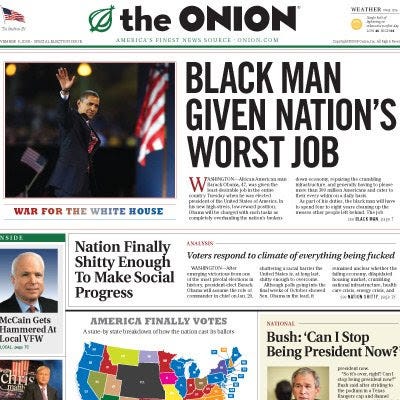Some common statements I've heard recently:
"working at this big company is so boring, I spend all my time sitting in meetings and writing docs"
"working at this startup is so chaotic, everything is on fire, we've pivoted five times and I have no idea how to fix it"
"being an over-funded pre-idea startup founder is so hard, I only had time for a 45 minute meditation session between my back-to-back coffee chats with friends"
Let me posit a simple framework: the agency-risk tradeoff curve. There is *usually* a monotically increasing relationship between how much agency you have in your job and how much risk you take on by doing that job. To specify, this risk is "brain damage risk" - when numbers go up, everything is fine, but when the line stops going up, how much blame/stress/responsibility/brain damage will fall on you?
This framework generalizes lots of "advice" and ways of thinking about organizations. Obviously there are tradeoffs here and the specific shape of the curve is going to be different for everyone (concave? convex? hinged?). But I hope it's useful for thinking about how you approach choices.
The ol' rest and vest
In some ways, product managers in tech have more agency than software engineers. Nobody gives a PM a JIRA, PM's hand out the JIRA's (I know I am overgeneralizing). This dynamic results in many SWE's wanting to be PM's - it seems glamorous and prestigious and you’ll finally have impact on what you work on. But PM's also incur more brain damage if things go wrong, being the 'single point of contact' for a team works both ways. And of course, being founder/CEO is the most ‘glamorous’ because of all that agency, but also comes with the most brain damage.
So what's "better"? This framework is entirely non-normative, some people value maximizing agency more and others value minimizing risk more. There's also tons of context, if you're personal friends with your CEO, your risk at that company is significantly decreased. That risk is not destroyed, merely transfered elsewhere, so by the same hand, it's probably a good idea to not join a company where there's a tight in-group you’re not part of: you don’t want to be the fall person for that untouchable in-group.
The rest and vest meme can also be represented on this chart. Lots of agency and very little personal risk, great for the individual / on the micro level. Bad for the company / macro level, that is energy which could have been spent elsewhere in the company or the economy.
(from HBO’s Silicon Valley)
Matt Levine's LinkedIn profile is simultaneously impressive and hilarious, in the way that only he can do, but I particularly liked his description of his "gardening leave" from Goldman: "If you have the opportunity to be paid an investment banking salary for doing nothing, I highly recommend it." I suppose garden leave is the same as rest and vesting: you get paid a bunch of money, so long as you don't work for a competitor, though a bit more explicit with respect to not working.
Rest and vest isn't for everyone either. It can be hard to find hobbies and passions to work on instead, idle hands are the devil's plaything, etc. But what you do really want to avoid are roles with inordinate brain damage risk relative to the agency you get.
Being POTUS is a pretty terrible job because you have basically infinite brain damage, anything that goes wrong in the world comes back to you, even if it's really not your fault and you're blocked by {Congress, the UN, ExxonMobil, etc}. On the other hand, being a (Democratic) Senator is a great job because you can always pass blame onto someone else and there are no consequences for not doing your job or ignoring party voting preferences.
Facebook is instructing its engineering managers to identify and weed out their lowest-performing employees as the company seeks to rein in costs during an economic downturn in the long-booming tech industry.
Facebook’s head of engineering, Maher Saba, sent a memo on Friday to managers urging them to identify anyone on their team who “needs support” and report them in an internal human resources system by 5 p.m. Pacific time on Monday.
“If a direct report is coasting or is a low performer, they are not who we need; they are failing this company,” Saba wrote. “As a manager, you cannot allow someone to be net neutral or negative for Meta.”
Yeah, I mean, that's probably true. Good luck measuring that correctly though!
Optimal levels of risk
Not to get too Taleb here, but there is an argument that your potential value to society is proportional to the risk you take on. If you are under the curve, you are “deadweight value” and “rent-seeking.” If you are over the curve, I guess you are trading your personal brain damage for the good of the economy, but like, why?
Just as a company with lots of rent seekers is poorly run, a country with tons of rent seekers is not efficiently run. If you get mad at Twitter for “overhiring” engineers for a product you perceive as simple, maybe also look at the healthcare or real estate markets here.
Importantly, these curves are different for everybody. Is the checked out engineer building their own pipe dream infrastructure project or random project idea “rent-seeking as much" as a pension manager or crypto fund charging 2/20 for highly-levered beta? I dunno, it's relative. Your personal perspective might assume a particular curve, their perspective might assume a different curve.
This dynamic plays into notions of fairness. You didn't earn "having rich parents" just as you didn't earn "raising $7M on $80M pre-product with a 3-page Notion doc." But again, fairness is relative, and I suspect kids who grew up filthy rich have slightly different notions of fairness, c.f. backlash to Obama's "you didn't build that." Every startup claims that they are breaking down some old inefficient system with tons of rent seekers (Uber - taxi medallions, Airbnb - hotel oligopolies, Tesla - car dealerships, Juicero - the United Fruit Company). That messaging can make economic sense, but it also makes emotional sense because humans are hardwired to hate rentseeking dregs.
You can probably use this framework to think about other things too - getting a mortgage reduces your agency (transaction costs, harder to move, gotta pay that every month, maybe that other lot would be nicer) but reduces some amount of tail risk (can't get kicked out, predictable mortgage vs rent increases, appease parents). You have some indifference curve here, and it's up to you where you want to be. Most people are risk-adverse and mortgages are great for them, since the risk-reduction means they'll likely be under that curve.
Ultimately everything is in your hands to decide what you want! No pressure.





